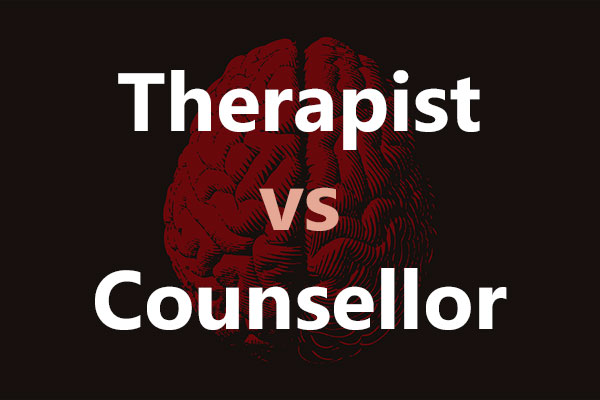
Interested in knowing the difference between a therapist vs a counsellor? Some psychologists only conduct research rather than providing therapy, whereas all therapists and counsellors provide some type of therapy to clients. Some therapists or counsellors may have education and training in psychology. Others may study childhood development, developmental psychology, social sciences, social sociology, cognitive psychology, education or related fields.
The terms “therapist” and “counsellor” is used interchangeably in many cases. While psychologists tend to have more advanced education and training, this does not mean they‘re superior to therapists or counsellors. Education is just one consideration. Choosing the right professional for therapy depends on a variety of other factors.
On the whole, therapists and psychologists will help you achieve your individual therapy goals. Both tend to be open-minded, empathetic, and understanding. Generally, they allow your personal challenges to decide the course of your counselling, therapy, or treatment. Therapists typically use a more holistic approach. This means discussing your whole person, allowing you to focus on your emotional state. Psychologists may focus more on how thoughts and behaviours interact with your environment.
All therapists who offer care and treatment must have a minimum of a master’s degree. Some might also hold doctorates in their specialty. In addition to education, therapists tend to hold certificates or licenses related to their specialty. This means that a therapist or counsellor will go through additional training in their specialty, along with taking exams. Professional regulations; ie., licensing and membership are different in countries across the globe.